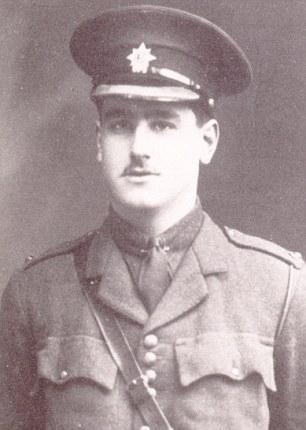John Kipling (John Kipling)

John Kipling was 16 when the First World War broke out in August 1914. His father, a keen imperialist and patriot, was soon writing propaganda on behalf of the British government. Rudyard sought to get his son a commission, but John was rejected by the Royal Navy due to severe short-sightedness. He was also initially rejected by the army for similar reasons. However, Rudyard Kipling was friends with Frederick Roberts, 1st Earl Roberts, commander of the British Army, and Colonel of the Irish Guards, and through this influence, John Kipling was commissioned as a second lieutenant into the 2nd Battalion, Irish Guards on 15 August 1914, having just turned 17. After reports of the Rape of Belgium and the sinking of the RMS Lusitania in 1915, Rudyard Kipling came to see the war as a crusade for civilization against barbarism. and was even more keen that his son should see active service. After completing his training, John Kipling was promoted to lieutenant on 7 June 1915, and was sent to France in August along with the rest of the battalion, which was part of the 2nd Guards Brigade of the Guards Division. His father was already there on a visit, serving as a war correspondent.
The casualty rate amongst junior officers (or subalterns) in the trenches was extremely high, much higher than NCO’s or other ranks. On average, a junior officer leading from the front survived six weeks before becoming a casualty – either killed or injured. John Kipling was reported injured and missing in action in September 1915 during the Battle of Loos. A shell blast had apparently ripped off his face. With fighting continuing, his body was not identified. His parents searched vainly for him in field hospitals and interviewed comrades to try to identify what had happened. A notice was published in The Times on 7 October 1915 confirming the known facts that he was “wounded and missing”. The death of John inspired Rudyard Kipling to become involved with the Commonwealth War Graves Commission and write a wartime history of the Irish Guards. The poem My Boy Jack also alludes to the wartime loss of a son, although its themes are rather nautical.
Born
- August, 17, 1897
- United Kingdom
- Rottingdean, Sussex, England
Died
- September, 27, 1915
- Loos-en-Gohelle, France
Cemetery
- Saint Mary's Advanced Dressing Station Cemetery
- Nord-Pas-de-Calais, France


